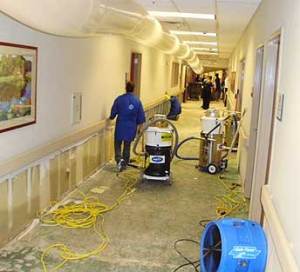“The oil in the fryer reached its ignition temperature; the employees tried to extinguish the fire with a fire extinguisher, which was ineffective against the burning oil.” Â
 A fire in a Pannekoeken restaurant fryer at the Days Inn Hotel in downtown Rochester on Saturday morning caused an estimated $100,000 in damage. Firefighters were called to the hotel, located at 6 First Ave. N.W., at 6:17 a.m., said Rochester Deputy Fire Chief Steve Belau. Employees had been opening the kitchen for the day, and had started the fryer when the mishap happened.
A fire in a Pannekoeken restaurant fryer at the Days Inn Hotel in downtown Rochester on Saturday morning caused an estimated $100,000 in damage. Firefighters were called to the hotel, located at 6 First Ave. N.W., at 6:17 a.m., said Rochester Deputy Fire Chief Steve Belau. Employees had been opening the kitchen for the day, and had started the fryer when the mishap happened.
“After a time the fryer was noted to be boiling excessively (and) efforts by employees to shut down the fryer were unsuccessful,” Belau said.
The built-in fire extinguisher system slowed the fire, but was overcome when the fire became too large, Belau said. When firefighters arrived, there was smoke in the main floor and fire in the exhaust hood area of the kitchen. Fire was coming out of the exhaust vent on the outside.
Firefighters used two large portable fire extinguishers. At first, each time they knocked it down, it came back, Belau said. Also, it was unusually hot and smoky inside the kitchen. “Oil fires are very difficult to extinguish due to the unusually high temperatures associated with them,” he said.
For more:Â http://www.postbulletin.com/news/stories/display.php?id=1491004










